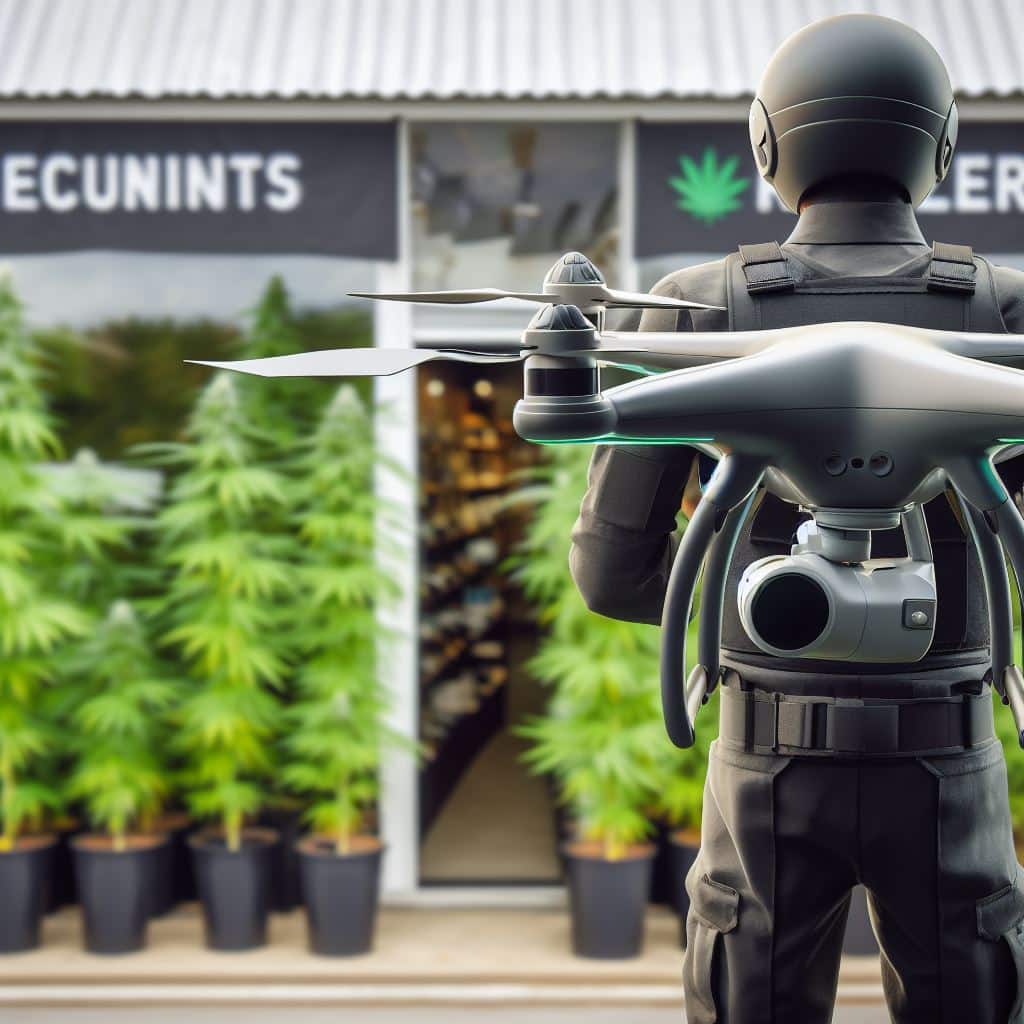Security guards are often what first comes to mind when people think of when considering how to best secure their property. The human touch adds a level of dynamism to their security system that can’t be replicated using technology like cameras alone.
Unfortunately, guards also bring quite a few problems to the table that technological solutions mostly avoid. Without proper training, oversight, and compensation, guards will likely be incapable or unwilling to take actions during an emergency situation that can both protect the property and human life on a business’s premises and shield that business from liability concerns.
Chris Eggers of Cannabis Compliant Security Solutions recently had an article published that discussed just this problem. Security guards represent both an integral part of a security system and, potentially, one of its greatest weaknesses. Unless the business owner takes their role seriously, their guards may end up being more of a liability than an asset to their business’s security.
The Compensation Problem
Costs are a primary concern of any business, but with the onerous burdens put on the industry by local, state and federal governments, its an especially acute problem for cannabis businesses. With expenses lined up around the corner, many businesses understandably search tirelessly for ways to save a few dollars, with many landing on ‘security’ and especially guard services.
According to Chris Eggers, this is a major mistake. “Business owners also often make their choice based on price alone, not fully understanding what they are getting themselves into. Understandably, many businesses operate on an extremely specific budget and cost is often a leading factor. Having said that, I cannot stress enough the importance of (at a minimum) understanding that price matters. I hate to see business owners pay money to guard companies expecting a solution that never occurs.”
Rates for guard services range from entry level (unarmed patrol services) to high grade (armed security with highly trained guards), and it is essential that businesses understand what they can expect from their guards depending on the rates they are paying. If you are making decisions based on costs, then the roles of your guards will necessarily change from physical security to essentially trained observers that will help with the insurance investigation after losses have been incurred.
Emphasis On Ongoing Training and Oversight
The law is not a static object, and changes to local or state laws regarding security procedures and regulations are a near-constant hurdle that businesses need to contend with when securing their operations. Ensuring that your security personnel, whether contracted out or hired in-house, are properly trained to respond to challenges effectively and in a manner compliant with the law may make the difference between business as usual and a ruinous lawsuit.
Chris Eggers advocates for consistent and ongoing training for all security personnel: “Additionally, investing in continuous training programs allows guards to develop their skills, stay updated on industry best practices, and respond effectively to evolving security challenges. This commitment to oversight and training fosters professionalism, instills confidence in the public, and enhances the overall effectiveness of security operations.”
Beyond training, oversight of security staff is also a must for security staff in order to preserve the integrity of your security system and ensure procedures are being followed: “I’ve seen video footage of a security guard using crutches because he had a leg cast, standing “watch” outside a cannabis facility. Not only does this bring potential liability, but I later learned that the business owner chose the cheapest option. I applaud the young man for his dedication to his job, but internal oversight was either deficient or non-existent to allow this young man to be in this position.”

Tech Alternatives
One of the primary benefits of a guard over their technological alternatives is their dynamic viewpoint. A security camera doesn’t have the capability to move around the premises, while a guard can, for example.
New technological options may help eliminate that distinction and, by extension, help reduce the costs associated contracting out for a large team of security professionals. Drone technology has the ability to not only stay mobile, but also provide a height advantage over security guards and equip a variety of detection equipment that can help identify threats in a variety of conditions that guards may otherwise miss.
Technologies like the use of drones and even AI may allow us to reduce the level of human touch involved in our security systems. The more the system becomes automated, the less chance there is of human error causing emergency situations to spiral out of control or causing general harm to both humans and the business as a whole. Effective use of security drones requires well-trained and conscientious operators providing monitoring and piloting services during patrols. CCSS’s security drone program utilizes the services of highly trained and certified pilots to perform high-level patrols for their clients, ensuring that all local regulations are accounted for and the business can be protected from both physical security threats and liability concerns. If you’re interested in the expansive roles drones and other bleeding edge technologies will play in the security industry in the coming years or are simply looking to get an edge on the criminal element, click here to learn more about CCSS’s drone program today.


Recent Comments